Rebecca Coder Park Is Law! Designation Legislation Passes Final Hurdle
Posted: September 26, 2022
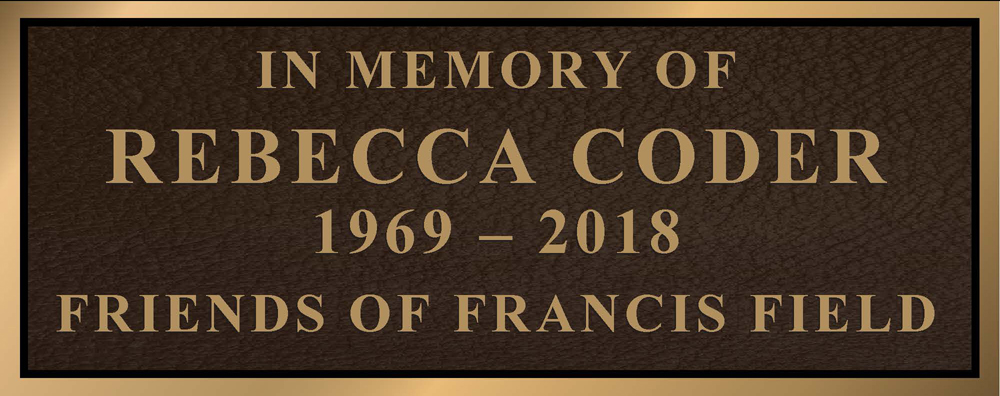
The Congressional review period having passed with no objection to the Rebecca Coder Park Designation Act of 2022, it is now law.
A dedication ceremony is in the planning stage, and a small plaque--shown at left--will be placed just above ground level on a portion of Francis Field that is officially Rebecca Coder Park.
The legislative record can be found on the Council's LIMS website: Bill 24-0233. It was recorded there today as "Law Number L24-1074 effective from September 21, 2022."
Rebecca was the first president of Friends of Francis Field, and served as an Advisory Neighborhood Commissioner representing the West End during ten years of its critical growth. She was also a founding board member of the Foggy Bottom West End Village, which assists members to age in place. She died on May 1, 2018, at the age of 49, after a long battle with ovarian cancer.
There are several background articles about Rebecca and the campaign for Rebecca Coder Park on this website. See particularly Not Just a Place but a Philosophy. Others are listed on the Site Map.
Making a Special Place

The park-naming project began on September 20, 2018, a few months after Rebecca's death, with a request by our organization to her colleagues on Advisory Neighborhood Commission 2A. We asked for a resolution in support of placing a plaque in memory of Rebecca in an area she helped to create.
Commissioner Florence Harmon, who served with her for ten years, introduced the measure to memorialize Rebecca and her efforts to provide passive recreation space "within the portion of Francis Field that is now a pleasant park, where neighbors can walk dogs, sit on benches, and enjoy this small but welcoming outdoor space, created in 2009 under her leadership."
The resolution passed, and was signed by William Kennedy Smith, the commission's chair. The other commissioners who voted--unanimously--were Patrick Kennedy, Marco Guzman, Philip Schrefer, Detrick Campbell, and James Harnett. (See full resolution.)
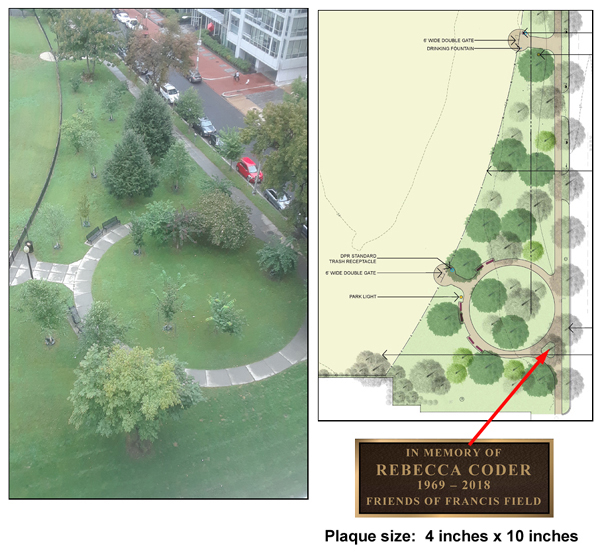
The proposed park area is shown in the photo and diagram at left.
There is no intention of renaming Francis Field, and it will retain that name. It seems never to have had any signage, and it has none today, although the nearby Francis Swimming Pool, Francis Junior High School, and since 2015, the Francis Dog Park, all have signage.
The nearby pool and school were opened in 1928, as part of the District's segregated recreation and school systems, and were named for Dr. John A. Francis (1856-1913), an African-American physician who had been a member of District's Board of Education, and a community leader. His photograph and more about him is included in the history article on this website.
The land that now makes up the western part Francis Field was purchased under a 1913 Act of Congress as a landscaping feature bordering on the federally-owned Rock Creek Park and Parkway.
The eastern part of the field was acquired under subsequent legislation, passed in 1930, to provide playground and recreational space in urban areas. The full, current landscape plan for Francis Field can also be found on this website.
The Legislation
Friends of Francis Field (FFF) learned, however, that in order to use the language "in memory" on a plaque or sign, the guidelines of the Department of Parks and Recreation require legislation by the District Council and the approval of the Mayor.
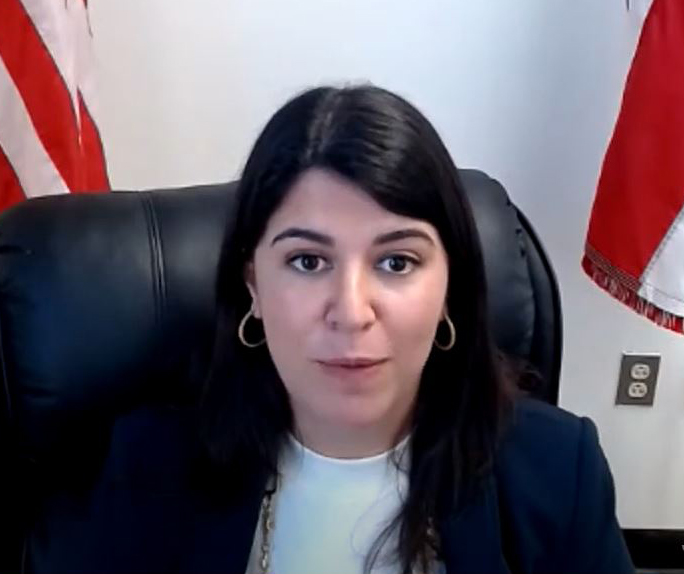
That legislation was introduced on May 1, 2021, the third anniversary of Rebecca's death, by Ward 2 Councilmember Brooke Pinto, using the language from the ANC-2A resolution, and defining the exact subsection of Francis Field to be named.
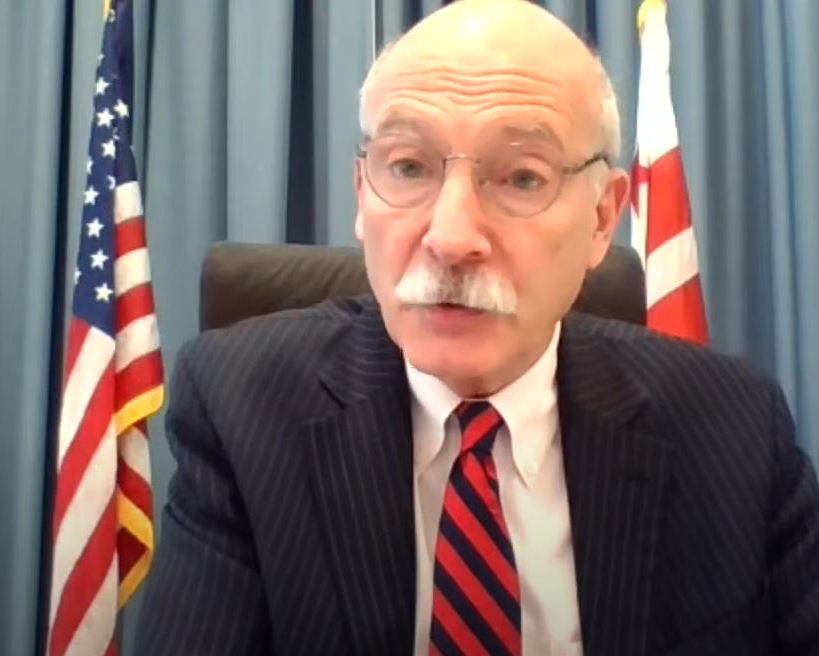
See her Letter to Council and complete text of the “Rebecca Coder Park Designation Act of 2021.”
The bill was referred to the Council's Committee of the Whole, made up of all 13 members. A hearing was held on November 3, 2021. This occurred during the Covid-19 public health emergency, and was conducted virtually by Zoom video conference.
Chairing the hearing before the Committee of the Whole was Council Chairman Phil Mendelson. Testimony was limited to four minutes per witness. Nine other bills were considered during the same session.
The Testimony
The crucial part in getting the bill passed, as an official, rather than a symbolic naming, FFF believed, would be the live testimony presented at the hearing. For this, we wanted to put on the record Rebecca's accomplishments and leadership. These were built on the volunteerism and positive energy that she espoused and inspired in others.
The eight people who testified included representatives of several volunteer organizations in the West End and Foggy Bottom communities. All of them had experienced Rebecca's spirit of volunteerism first-hand and up-close. Each added to the story we collectively wanted to tell and memorialize.
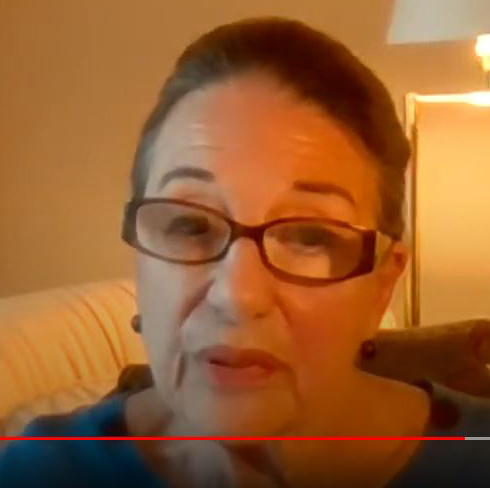
Jacqueline Lemire is a one of the respected figures in the West End and Foggy Bottom neighborhood, and a long-serving member and officer of the Foggy Bottom Association. She is also a co-founder of the Foggy Bottom West End Village, which works to assist residents to age in place and remain independent in their homes.
Jackie explained that when the Village was trying to determine whether such an organization could be viable, they approached Rebecca, whose professional career was in banking--at that time she was about to become a senior vice president of the National Cooperative Bank.
Jackie told the Committee: "Rebecca was only 42 at the time we approached her--much younger than the neighborhood residents we were proposing to assist--but she immediately agreed to join the nascent development board."
"She then agreed to be the treasurer of the Village, a position that she held for five years--until several months before her premature death at the age of 49."
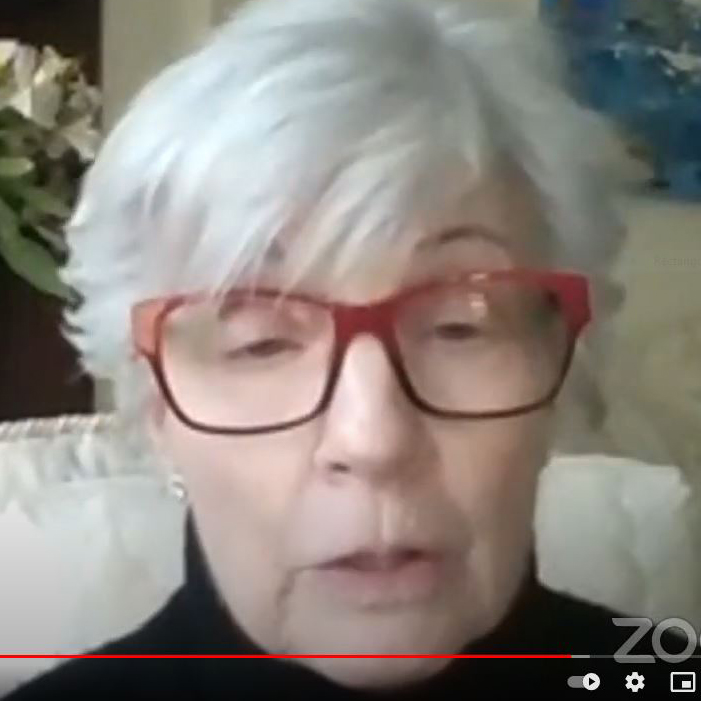
Susan Haight is a West End resident who has served since 2005 as the president of the West End Library Friends, and is a past-president of the city-wide Federation of Friends. She is also one of the co-founders of the Foggy Bottom West End Village, and a respected voice in the neighborhood.
Shortly after Rebecca's death, Susan spearheaded the effort to place a plaque on the Wall of Honor at the West End Library for Rebecca, writing to the Board of Library Trustees that Rebecca "worked diligently to make the new West End Library a reality since it was first imagined in 2009."
In her Committee testimony Susan said: "Rebecca and I worked on numerous projects in our neighborhood‐‐‐Francis Field, a new library and fire station, creating the Foggy Bottom West End Village, Duke Ellington Park, and on ANC matters."
"She was always well informed, generous with her time, cared about our community and is very deserving of this designation honor."
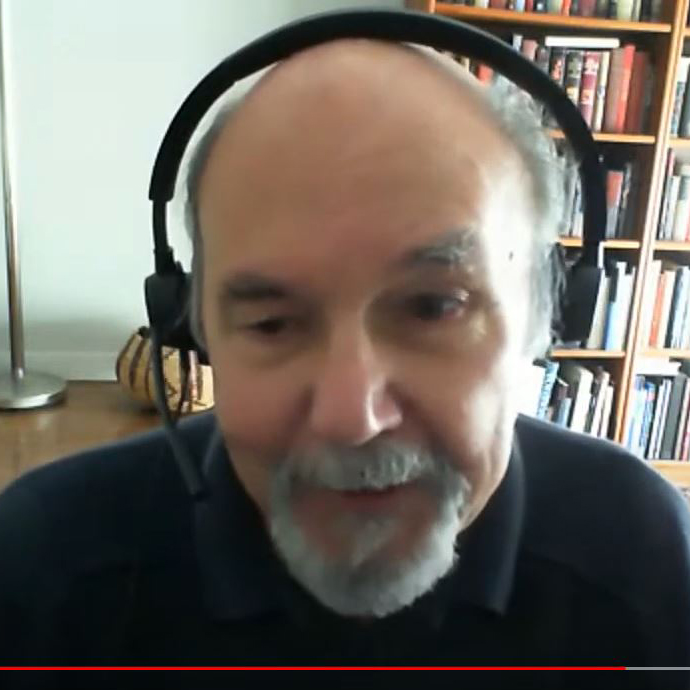
Gary Griffith has lived in the West End for 30 years, and was a co-founder with Rebecca of the Friends of Francis Field in 2007. He served as secretary of that organization for its first ten years, and has been its president for the last five. He said in his testimony:
"Through a zoning case in 2007, Rebecca led the renovation of an athletic field surrounded by a chain-link fence into more of a community asset, by providing park space for passive recreation as well as for sports activity."
"It is her spirit we would honor in this naming. She enriched us with her friendship and good nature and her joy of living. She was fun to be around, and she inspired volunteerism in others."
"This bill will recognize the work of Rebecca Coder, and remind us to keep alive the spirit of volunteerism in local government that she embodied."
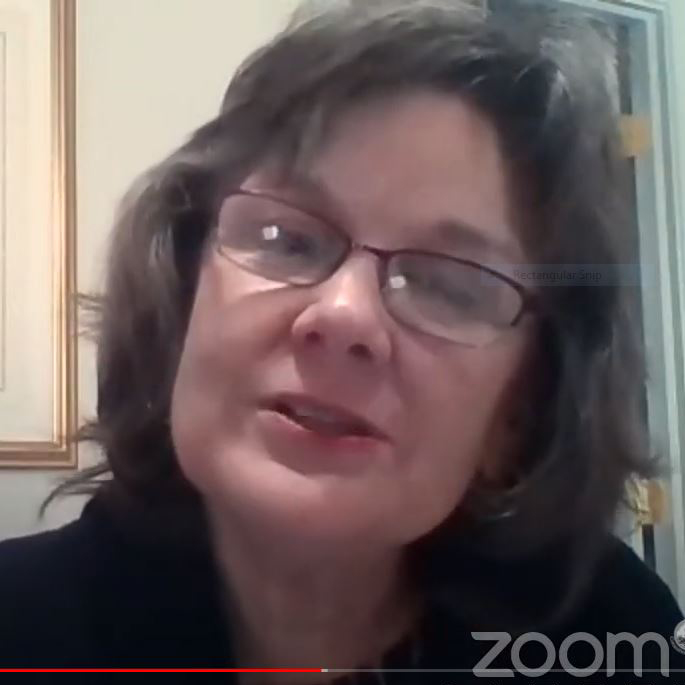
Florence Harmon had served on ANC-2A for one term before Rebecca was elected and served with her longer than anyone. After the 2010 census, Rebecca's large and populous district was cut in half, and Florence inherited the eastern half of it in the decennial redistricting. Her committee testimony was heartfelt and effusive. She said in part:
"Rebecca never complained about her health. For ten years, I worked closely with her and never saw her waiver in her dedication to her constituents, always answering emails from her hospital bed and securing relief from D.C. officials for various neighborhood issues no matter how sick she was."
"Over those ten years as the commissioner for ANC 2A02, Rebecca put in thousands of volunteer hours as an unpaid public servant to benefit our neighborhood."
"I really miss Rebecca!"
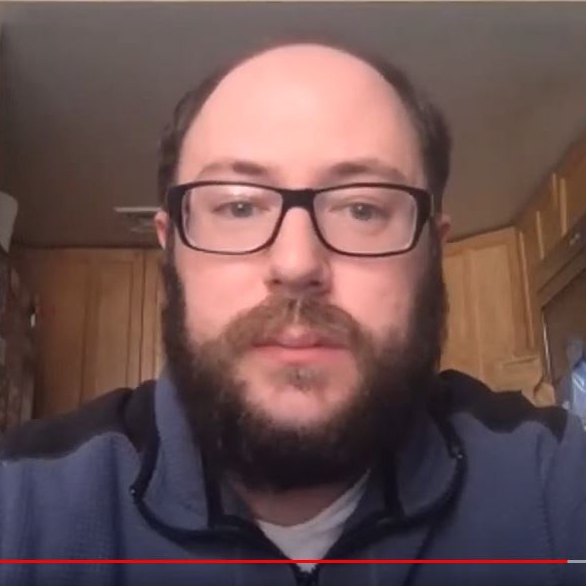
Peter Sacco also served on ANC-2A with Rebecca, having been elected in 2012 from a student-populated district before his graduation from George Washington University. He now serves as the executive director of ANC-2A. In his testimony, he provided a masterful four-minute summary of her career and her accomplishments, including:
"... the redevelopment of the West End Library site ... funded through a public-private partnership" and "the West End's Square 50 parcel, which included a home for DC Fire and EMS Engine No. 1, providing crucial public safety resources for the community, and 52 units of affordable housing."
"Rebecca's advocacy ... also included her work to prevent the closure of the West End's Francis-Stevens Education Campus, ANC 2A's neighborhood school serving grades pre-K through 8 ... and lastly "the creation of Duke Ellington Park, a triangle park honoring the West End's own Duke Ellington, who was born less than a block from the location."
"Her accomplishments are numerous and have resulted in transformational change, especially for the West End neighborhood."
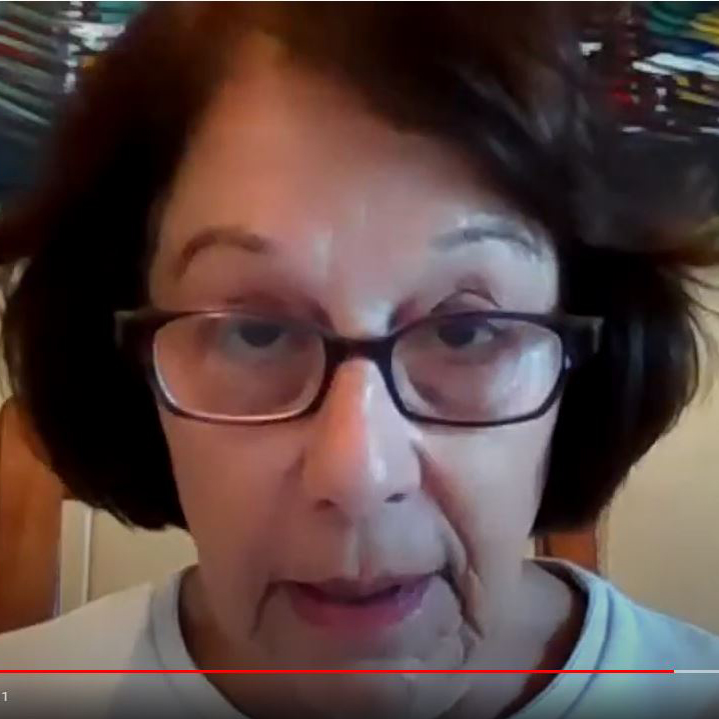
Jeri Epstein was the chair of ANC-2A at the time of the hearing, serving her second term on the commission, succeeding Florence Harmon in representing the eastern half of the West End. She testified that her own call to service came from Rebecca's example. She said further:
"Rebecca Coder was a visionary leader. She saw a West End before there was a West End. She was steady and focused in her efforts to build a neighborhood with its own personality."
"Rebecca’s support for the FBWE Village, the West End Library, and the new fire station were among her most successful efforts."
"She worked for Francis Field, the dog park, and the play area and the neighborhood gathering place. It is entirely appropriate to name this park for Rebecca Coder as a reminder of what care for others and devotion to public service can achieve."
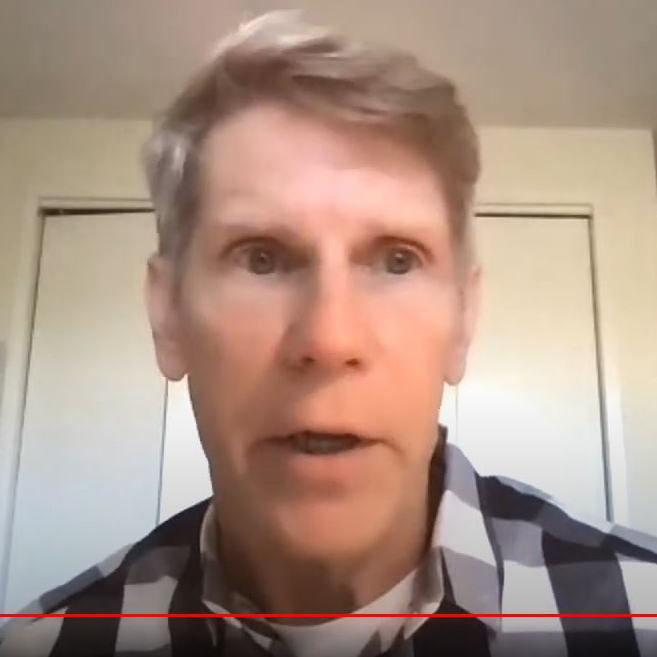
John George is the current president of the Foggy Bottom Association, the largest civic organization in the Foggy Bottom and West End neighborhood, and one of the oldest neighborhood-focused organizations in the District. He stated that he was speaking on behalf of "the entire Foggy Bottom and West End neighborhoods" in supporting the Rebecca Coder Park Designation Act.
He said further about Rebecca: "She was an active DC resident and ANC 2A commissioner, who focused on volunteerism and raising the quality of life of her neighbors."
"She dedicated many hours in support of Francis Field renovations for sports and athletics, but also for an adjacent dog park, and a quiet green space. The transformed area it now is couldn’t have happened without her."
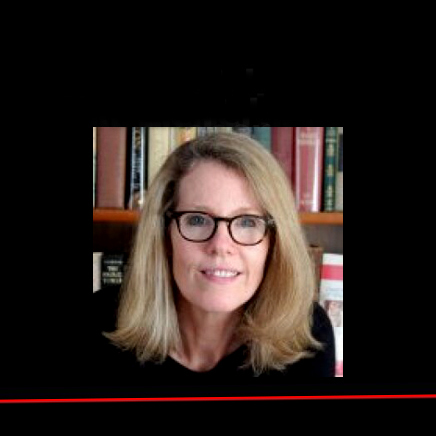
Jill Eicher is a member of the Friends of Francis Field and a near neighbor who became a close friend of Rebecca's. They shared an interest in trees, water infrastructure, groundwater run-off, and cocktail slippers. She testified:
"I would like to urge you to pass the bill which will designate Rebecca Coder Park in recognition of the extraordinary contribution she made to our neighborhood. Rebecca served as our Advisory Neighborhood Commissioner for ten years, working selflessly to improve daily life for all in district 2A."
"Thanks to her contribution, Francis Field is now enjoyed by school kids, dog walkers, and recreating adults, and it is surrounded by 43 new trees. She was an exceptional public servant and a remarkable woman who is missed greatly."
In addition to the eight people who testified live during the hearing, another twelve filed written testimony with the Committee of the Whole in support of Rebecca Coder Park.
These were: Madelyn Appelbaum, Bill Armistead, Bradley Belt, Beth Monroe Chase, Pat Guter, Christopher Haspel, Brett Podoski, Michael Scheininger, Sheridan Strickland, Michael Thomas, Patricia Tith, and Janet Waxman.
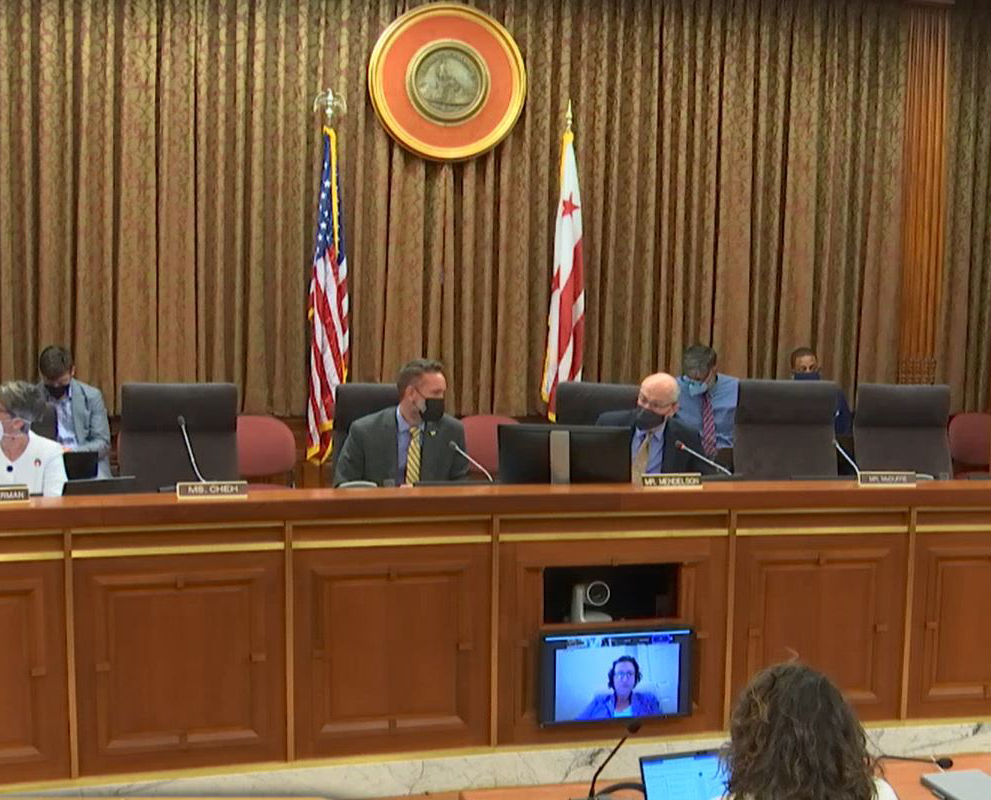
Report, Readings, and Votes in Council
The Committee of the Whole marked up the bill on May 17, 2022, unanimously recommending its approval to designate the described subsection of Francis Field as "Rebecca Coder Park" and to authorize the Mayor to accept "a bronze plaque set in stone to be installed at a location in Rebecca Coder Park determined by the Mayor in consultation with the Friends of Francis Field."
As required, two readings during a legislative meeting of the Council were completed. In the first reading in the session of June 28, the bill was passed unanimously; as it was at it second reading on July 12.
The full Committee Report can be read on the Council's LIMS website at this link. It will open in a new window in PDF format.
On July 21, 2022, the bill passed by the Council was sent to Mayor Muriel Bowser for her review.
The Mayor's Signature
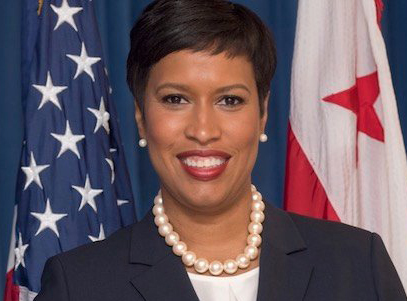
The Bill became an Act on July 27, 2022, when Mayor Muriel Bowser approved it with her signature.
A copy of the enacted bill as Act 24-525, is on this website. In addition to the Mayor's signature, it records the official votes of each Councilmember in each of its readings at a legislative session.
The final hurdle for the act to become law was the required review by the United States Congress.
Persuant to the Home Rule Act in which the District of Columbia achieved self-government from Congress in 1973, the U.S. House of Representatives and the U.S. Senate have 30 legislative days to review such legislation, and disapprove it by joint resolution if they so choose.
That review period ended on September 21, 2022, for the Rebecca Coder Park Desigantion Act. There was no Congressional opposition or comment.
Thus, Rebecca Coder Park is now an official memorial in the District of Columbia for a stellar volunteer and a wonderful spirit.
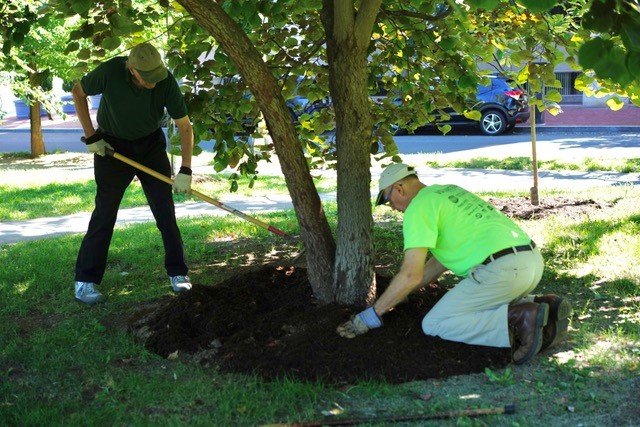
Going forward ...
Volunteers have been tending the Rebecca Coder Park area for several years. The Covid-19 health emergency slowed down the activity, but the FFF landscape committee has been revitalized and is now working regularly on the trees and landscaping in several areas of Francis Field.
As stated in the legislation, the location of the brass memorial plaque in the park will be determined by the Mayor.
Setting the plaque in a suitable stone is still in the design stage.
Our organization will be consulting with Rebecca's family, our landscape architect, and a supervising architect from the Department of Parks and Recreation on the selection of a site to recommend.
A date for an appropriate ceremony or dedication will be set in the near future.
